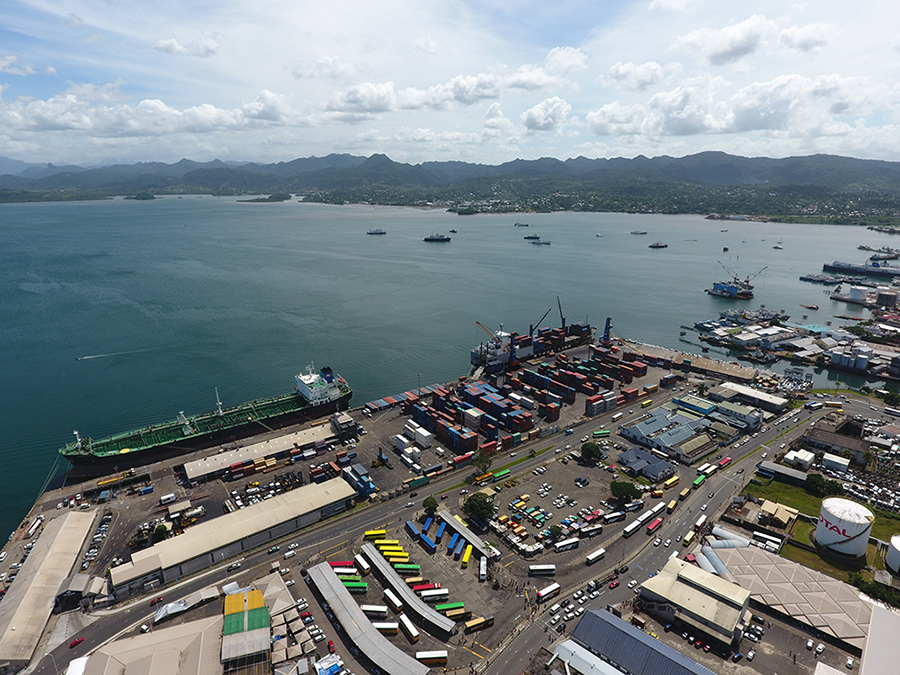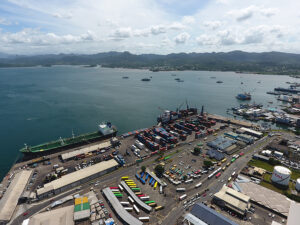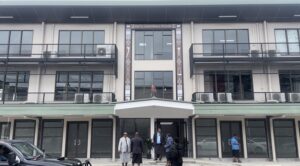Fiji recorded a net surplus of $131.2 million, equivalent to 0.9% of GDP in the first quarter of the 2024-25 financial year, a sharp contrast from a net deficit of $21.5 million recorded for the same period last year.
Tax revenues exceeded forecasts, reaching $885.2 million in three months—11.1% higher than projections, according to an economic update delivered by Fiji’s Minister for Economy and Deputy Prime Minister Professor Biman Prasad in Parliament today.
“Total revenue collections for the first three months increased by $196.1 million or 22.0 percent compared to the same period last financial year,” Professor Biman said attributing it to improved collections in consumption taxes, particularly VAT along with corporate taxes, PAYE and withholding taxes. Departure tax and water resource tax collections fell short of forecasts but exceeded last year’s figures for the same period.
Non-tax revenue also showed strong performance, driven by higher-than-expected dividends, including $135.5 million in profits from the Reserve Bank of Fiji.
“Non-tax revenue totalled $202.2 million, a favourable outcome with above budget collections of $18.7 million or 10.2 per cent. This was largely attributed to higher collections from dividends from investments, including profits from Reserve Bank of Fiji (RBF), as well as increased collections from fees, fines, and charges.”
Government expenditures for the first quarter totalled $956.3 million, or 21% of the annual budget, comprising $734.9 million in operating expenses and $211.6 million in capital expenditures, resulting in a 78:22 mix. Expenditure increased by $43.4 million (4.8%) compared to the same period last year, driven by higher operating costs, including wages and interest payments, but offset by underspending in transfers and outputs.
Capital expenditure fell short of budget by $24.4 million (-10.3%) due to delays in transfer payments, despite increased spending on non-current assets.
In terms of Government total debt, this stood at $10.6 billion (75.4% of GDP) as of October 2024, with 63.7% in domestic and 36.3% in external debt. Debt servicing accounted for 25.3% of the budget ($221.8 million), split between $120.6 million in interest and $101.2 million in principal repayments.
Debt-to-GDP is projected to be around 77.8% by the end of FY2024-2025, down from 90.7% in FY2021-2022.
Tourism
Tourism continues to be the backbone of Fiji’s economic recovery, with the industry exceeding expectations.
From January to October 2024, visitor arrivals rose by 6.5% compared to the same period last year, led by increases from Australia (+4.9%), New Zealand (+3.8%), and the United States (+8.6%).
“These three countries account for around 80 per cent of our visitors, and despite some economic challenges in these countries, we have not seen any slowdown in numbers—on the contrary, we have seen stronger growth,” Professor Biman stated.
Fiji is set to achieve a record-breaking year with just under one million tourists expected by year-end.
The introduction of direct flights between Nadi and Dallas next week is forecast to further boost visitor numbers, potentially adding an additional 1,000 weekly arrivals.
Economic Outlook
The Fijian economy grew by 7.5% in 2023 and is projected to grow by 3.8% in 2024, a significant upward revision from the earlier forecast of 2.8%. The growth rate for 2025 has also been upgraded from 3.0% to 3.4%.
“Given the strong linkages of the tourism industry with the rest of the economy, related sectors such as transport & storage, accommodation, wholesale & retail trade are also driving the higher growth this year.”
Investments in major infrastructure projects, including four critical bridges worth over $300 million, have further boosted investor confidence. Cement sales rose by 11.2% up to September 2024, while commercial lending for investment purposes grew by 25%.
Inflation and Cost of Living
Fiji has made significant strides in controlling inflation, which fell to 0.8% in November 2024—the lowest in 16 months. This marks a sharp drop from 5.8% in November 2023.
“November 2024 inflation is the lowest in 16 months and is driven by lower prices noted in food and non-alcoholic beverage (-2.7%), transport (-1.3%), housing, electricity, water, gas and other fuels (0.2%) and clothing and footwear (-0.1%),” Professor Biman said.
While Fiji’s economy is on a solid path and the outlook is brightened by opportunities in tourism, infrastructure projects, and easing labor market pressures, Professor Biman acknowledges that risks remain, including potential natural disasters, global geopolitical tensions, and economic slowdowns in trading partner nations.









